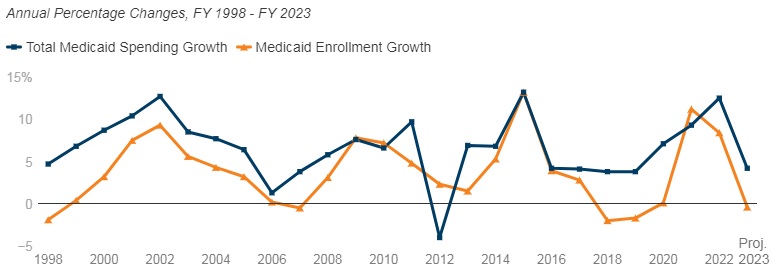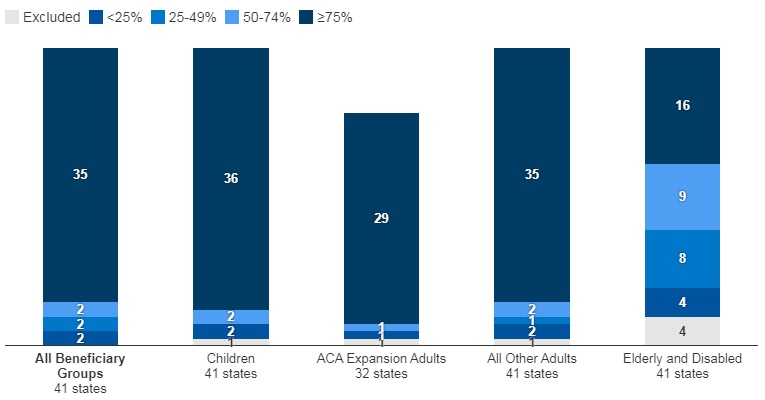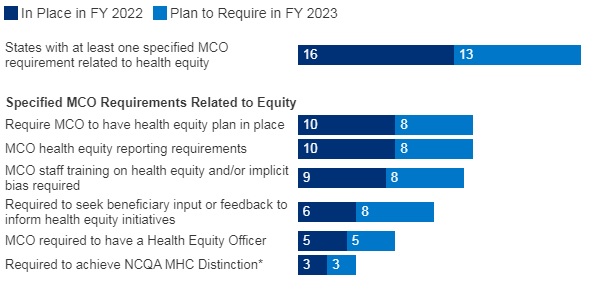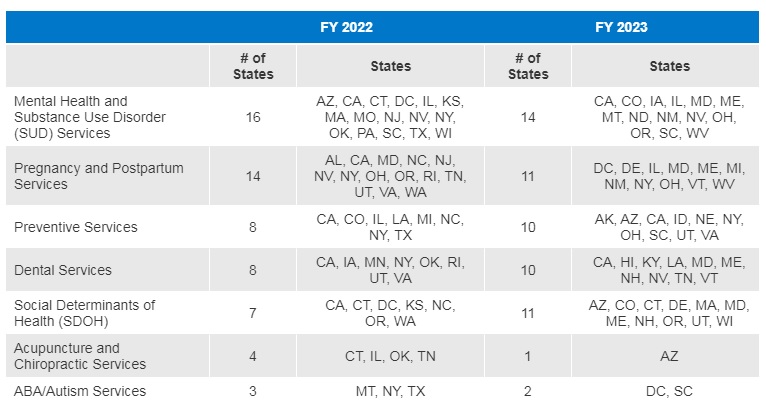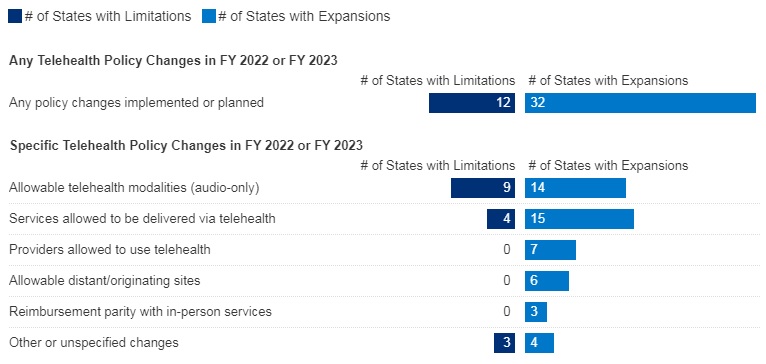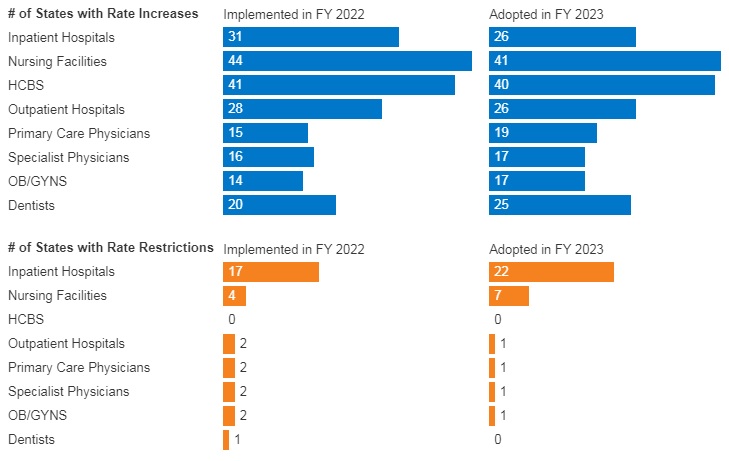On March 6, HMA convened a spring workshop of 100 healthcare stakeholders interested in making value-based care delivery and payment work better. This event was designed for those engaging in value-based care and payment transformation, but who are looking to learn from peers to overcome challenges; participants included insurers, health systems, data and tech innovators, service providers, and trade associations.
The event’s name implored people to “Get Real” about the challenges we all face, while reminding ourselves of the imperative of making this transition to ensure the sustainability of our uniquely American healthcare system. In between plenary panels, participants were engaged in cohort discussions exploring the opportunities for progress in areas critical to making value-based care work. While a summary cannot recreate the real-time discussions and simulations from the event, our discussions delivered insights on several critical themes that we believe are important to track.
EMPLOYERS ARE LEANING IN: For all employers pay, they are getting less value over the past decade; the changes made to ERISA that hold the C-suite accountable for paying fair prices for healthcare benefits is a seismic shift in making healthcare purchasing a more strategic priority for employers.
- Elizabeth Mitchell of the Purchaser Business Group on Health illustrated the shift in employers’ awareness – due to data transparency rules – that they aren’t getting the quality they thought they were getting for all that they pay. Transparency, plus a recent change to the Employee Retirement Income Security Act of 1974 (ERISA), is bringing employers back to the table with very specific requests for better outcomes, which they are increasingly pursuing through direct contracting and specific quality frameworks for primary care, maternal care, and behavioral health. Participants continued to reflect on this dynamic in all subsequent discussions, underscoring that this could be a really big deal.
- Cheryl Larson of the Midwestern Business Group on Health talked about the cost pressure on her members leading them to partner in new and different ways, expressing optimism about all payer solutions and other innovative approaches to leverage the cost data that are now available. In her closing plenary session, she said “this issue of accountability on employers…I am excited and optimistic that there are things we can do to get there faster now.”
Data & Technology HAVE TO IMPACT DECISION MAKING: Patients are using the system the way it is designed today, so we can’t just blame them for poor outcomes…we have to actually stop doing things that don’t work and start measuring things the right way.
- Dr. Katie Kaney opened with a dinner keynote discussing her efforts to create metrics that give purchasers a better measurement of whole person care, including clinical, genetic, behavioral, and social factors. Audience members remarked that this was a novel approach to quantify what has become accepted correlation in adverse health outcomes.
- Ryan Howells, Dave Lee, and Stuart Venzke led discussions on Data & Technology, diving into updated federal regulations that present both opportunities and challenges for stakeholders, as well as ways to create corporate strategies that include data and technology, as these issues are no longer optional for anyone in this business. The breakout discussions talked about where we are today vs where we need to be – bridging the gap between data and decision making.
Payment & Risk TOOLS ARE ALIGNING INFORMATION TO ACTION: Achieving meaningful risk-based contracts is possible but the details matter…mismatched data and information leads to unequal buying power, which cannot be the case in value-based care.
- Kelsey Stevens, Scott Malan, Hunter Schouweiler, and Kate de Lisle led discussions on Payment & Risk, including an exciting hands-on simulation exercise that helped participants understand ways to increase premium scores by implementing risk-based payment approaches within the care delivery system; this session provided very concrete takeaways for those who attended by combining a simulation with a discussion on measures of success to improve risk-based contracting strategies.
- Amy Bassano and Kate de Lisle discussed their recent publication on the expanded ecosystem of value-based care entities, looking at the “enablers” who are working with providers and payers to manage risk. This groundbreaking landscape of this market segment highlighted a set of Guiding Principles to ensure these entities are aligned with CMS, provider, and patient goals. Participants had lots of questions for the presenters and were anxious to read the HMA full report.
CARE DELIVERY MEASURES MUST BE TANGIBLE TO PROVIDERS AND PATIENTS: Value-based care requires aligning the right metrics with the right incentives, ensuring providers understand not only WHY but HOW they help improve patient outcomes.
- Rachel Bembas, Dr. Jean Glossa, and Dr. Elizabeth Wolff led discussions on Care Delivery Measures, underscoring the importance of involving clinicians in the establishment of outcomes measures, as well as ensuring that the diversity of patient experiences are included. Participants remarked that we have a lot of “messy” data today, so we now have to ask the next set of questions on how we best use the messy data to make an impact?
- Former Congresswoman Allyson Schwartz talked about the continuing promise of Medicare Advantage, and the opportunity to convene a new alliance around Medicare quality metrics as well as the increasing pressure to align these metrics across payers. In the closing plenary, she said “We need to define what we want healthcare in America to look like and then go out and get it…. We have to align the measurements and the standards we use so that providers understand what’s needed and it benefits government, taxpayers, and beneficiaries…we should require plans to have risk-based contracting with providers.”
Policy & Strategy HAVE TO STAY THE COURSE TO ALIGN INCENTIVES: Policymakers can help or hinder movement forward to ensure success…value-based care has to be more than a section in an RFP, but part of the entire scope of paying for outcomes-based care delivery.
- Governor and former HHS Secretary Mike Leavitt reminded us of the political and policy journey that got value to where it is today, and the unique moment we are in right now that gives us hope as we enter this post-pandemic phase of healthcare spending and policy. He reflected, “We are beginning to see regulations and mechanisms to hold people accountable for healthcare costs…we have to integrate value and caregiving or we will never get to value.”
- Theresa Eagelson, former Illinois Director of Healthcare and Family Services, talked about the opportunity for states to expand value-based care by setting strong expectations through contracting and by thinking differently about policy choices. She reflected on the role of state administrators, “When we sit here and talk about value-based care, do we know what our north star is? Have we mastered what we want to see in RFPs (for Medicaid)? We’re working on a good FQHC model in Illinois, but should it be just for FQHCs? We need to spend more time together, across payers, across plans and providers and consumers to figure out what success looks like.”
- Caprice Knapp and Teresa Garate led a discussion on state and local Policy & Strategy to support integrated care and services that are required to achieve better outcomes. There is a need for services to better coordinate and manage care across social and health services, bringing contracting and payment expertise to more efficiently serve patients. The highly anticipated Medicaid managed care rule can help guide states in updating their approach. Federal analysis of Medicaid data is needed to set benchmarks before we can get to total cost of care approaches.
- Amy Bassano and AnneMarie Lauterbach led a discussion on federal policy alignment of Medicare FFS and Medicare Advantage, particularly looking at drug spending and the very real burden of medical debt as a driver of policy change. Participants reflected that half the country is indirectly covered through some public insurance. It’s just being done hyper-inefficiently.
HMA is leading the way on value-based care and is committed to continuing these dialogues to drive local, state, and national change. HMA’s value-based care expertise draws from our acquisition of Leavitt Partners and Wakely Consulting Group, two firms with deep ties and expertise on policy, strategy and risk-based pricing strategies, as well as recruitment of clinicians and operational experts who have led organizations through this transition. We will continue to advance the dialogue – and the work – to drive value as a critical way to ensure that our systems of health and healthcare are more affordable, equitable, and sustainable.
Let’s keep the conversation going! Click here to learn more about how HMA can help you succeed with value-based payments and check out the newly released value-based payment readiness assessment tool for behavioral health providers.




